Getting to know essential oils
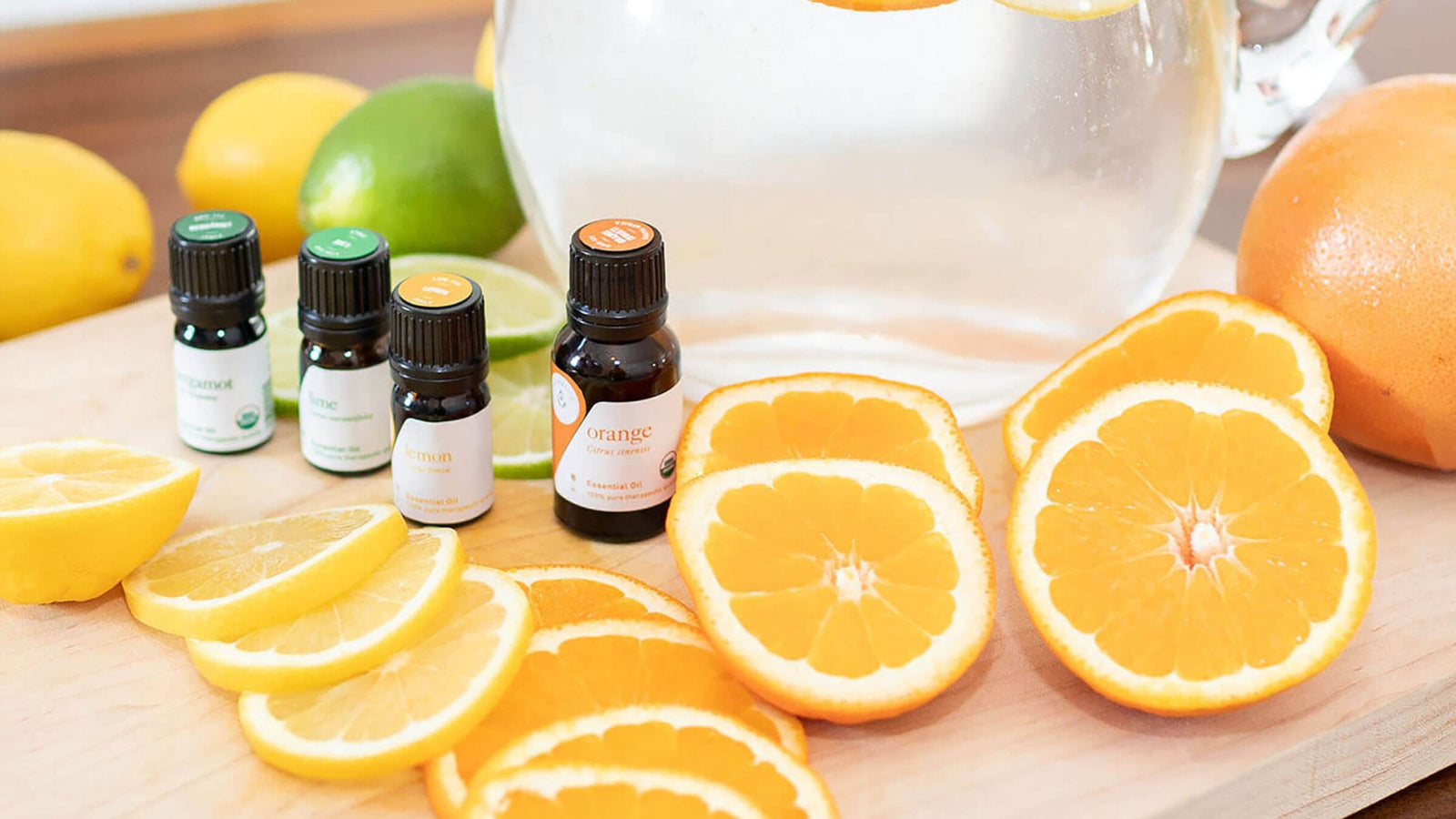
Getting to know essential oils
What is an essential oil
Essential oils are concentrated, volatile chemicals derived from the roots, leaves, stems, fruits, or flowers of plants. They capture the plant’s aroma and can provide a wide range of health and wellness benefits, when used safely and correctly.
How are they made?
To create essential oils, large quantities of harvested plant materials go through steam distillation, cold pressing, CO2 extraction, or a solvent extraction process to release their chemical compounds.
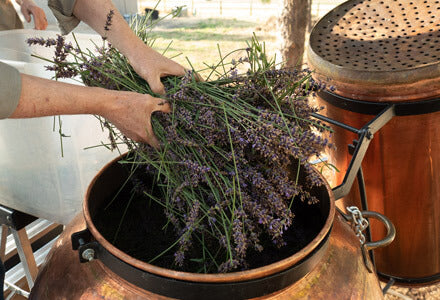
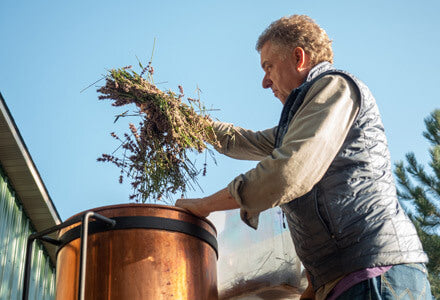
To give you an idea of just how potent and concentrated essential oils are …

Understanding the incredible potency of essential oils is the first step in considering how to use them safely and effectively. Our mantra is less is more. A little bit goes a long way!
How do essential oils work?
It can be a stretch at first to consider that just by smelling something or putting it on your skin, an array of mental and physical benefits can occur. First, remember that when you interact with essential oils, you are doing much more than smelling a flower or drinking a cup of herbal tea. You are harnessing the power of all the chemical components that plant has to offer in a concentrated form.
Essential oils contain a wide variety of chemicals developed by plants throughout their evolution. These chemicals help plants survive in a wide range of habitats, attract pollinators, ward off pests, and perform other useful functions. These naturally-produced chemical compounds are the basis of each essential oil’s therapeutic benefits. Each essential oil contains chemical components at various levels and combinations, but a lot can be learned by understanding common properties found in chemical families.
Learn about chemical familiesInhalation
When inhaled, essential oils interact with our olfactory system (the source of our sense of smell) and quickly stimulate the brain. In addition, when we inhale essential oils, molecules travel to our lungs and enter our bodies through our respiratory systems.
Another way that inhaled essential oils can affect our system is through receptors that impact the limbic system, which controls our heartbeat, blood pressure, breathing, memory, stress, levels, hormones, and emotions.
In other words, simply breathing in these concentrated, naturally occurring chemicals can impact our systems quickly and in multiple ways.
Topical application
When you put essential oils on your skin, they enter your system by absorption. Your skin is semi-permeable, allowing active chemicals to travel into your body. This is how topical medicines work.
Because essential oils are so potent, we recommend that you always dilute them with a carrier product before putting them on your skin.
Because essential oils are so potent, we recommend that you always dilute them with a carrier product before putting them on your skin.
What is aromatherapy?
You can’t get too far into essential oils without also understanding aromatherapy. It's the art and science of using naturally extracted aromatic essences from plants to balance, harmonize, and promote the health of the mind, body, and spirit. The National Association of Holistic Aromatherapy (NAHA) offers more information and in-depth definitions.
Aromatherapy has been practiced since ancient times and has its own deep body of knowledge and terminology. We’ve created an aromatherapy and essential oil glossary to help you get familiar with some terms that are helpful to know.
Aromatherapy glossaryWhat can essential oils do?
Essential oils have a wealth of benefits on their own and can be combined with other oils to expand their abilities and address a wide variety of health and wellness needs.
Some well-known uses include:
- Soothing normal aches and inflamed areas
- Providing emotional support
- Balancing, grounding, or uplifting emotions
- Healing or soothing skin conditions
- Easing cold or flu symptoms
- Boosting immunity
- Supporting healthy digestion
- Reducing muscle cramps or spasms
- Rejuvenating and nourishing skin
- Purifying infections
- Cleaning and disinfecting surfaces
It’s important to note that while essential oils offer many helpful benefits, they should be seen as complementary treatments along with medical care.
What are some simple ways to use essential oils?
Put them on your skin (but only after diluting with a carrier!)
Essential oils absorb through your skin and into your system, providing a wide range of benefits.
Use them in an inhaler or diffuse them into the air around you
Inhalers are small metal or plastic tubes that look a bit like chapstick with a cotton wick inside.
You can add essential oils to the cotton wicks, then put the lid back on to keep the scent contained. Inhalers are a great way to enjoy personal aromatherapy on the go, anywhere.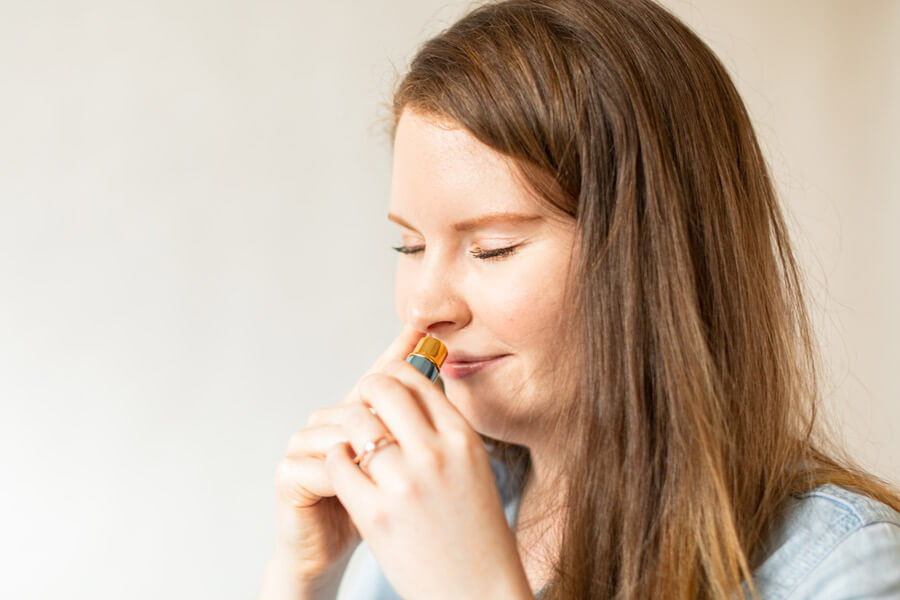
Diffusers turn drops of essential oil added to water into a fine mist that can add a lovely aroma to your space, help purify the air, and help you absorb the benefits of essential oils through inhalation. We recommend using an ultrasonic diffuser that emits a cool mist and won’t affect the properties of your essential oils so you can experience their full benefits.
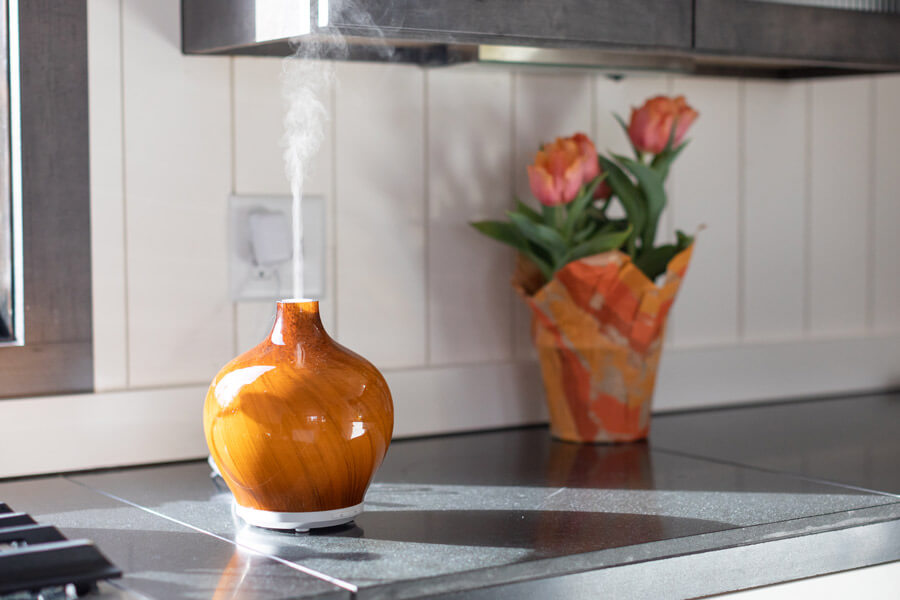
Use them to create DIY cleaning products
Many essential oils have germ-busting properties, making them fantastic replacements for harsh chemical cleansers.
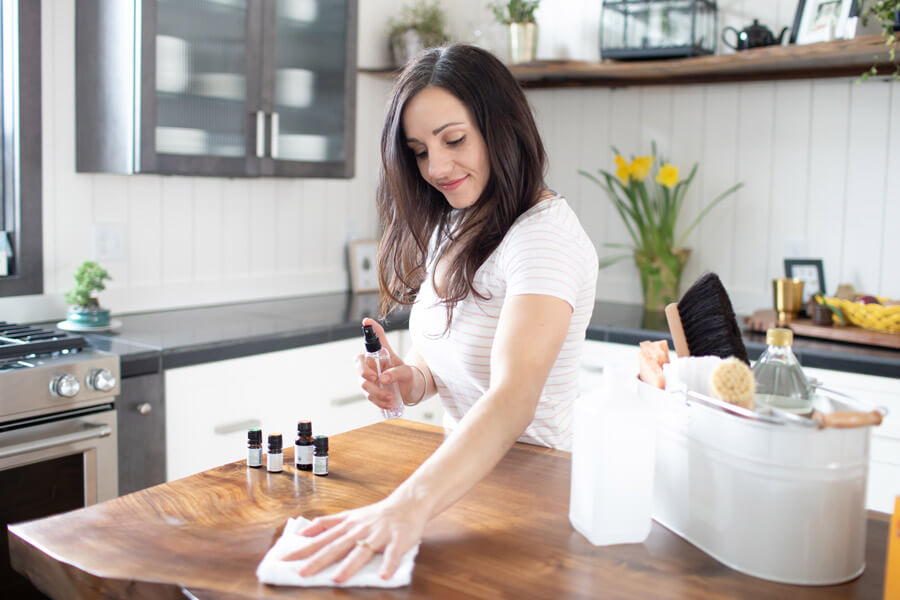
Enjoy them in the bath or shower
Creating your own essential oil soaps and scrubs can add extra peace and healing to your bath or shower. Just make sure your essential oils are properly diluted before using them on your skin!
Getting to know essential oils
Join Our Newsletter
Save 15% on your first order
Aromatherapy sent directly to your inbox. Receive tips, essential oil recipes, promotion alerts, live events and more. We look forward to connecting with you! *Exclusions apply.
